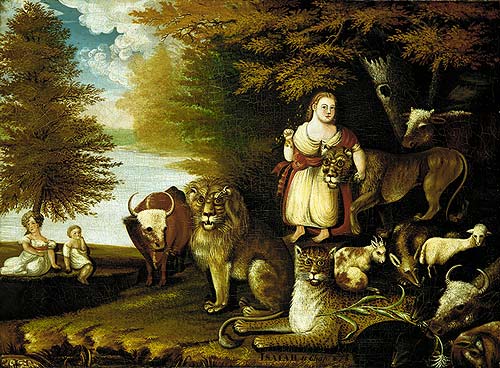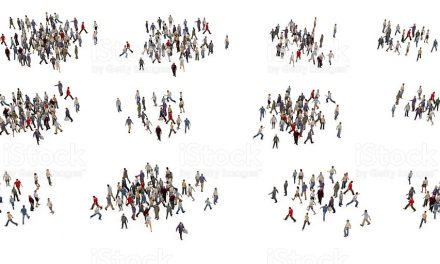In 2012, I suggested a list of five things Catholics should learn from this election season (see it here) – given the weirdness and uniqueness of the current election season, I’m offering my new, revised list:
1.Don’t underestimate the power of evil. This was number five on my 2012 list. It probably should have been #1 then, too, but it’s gotten to a whole new level this year. I cannot quite grasp how people think it’s okay to be mean to each other (“deplorables” and “nasty woman” and pussies and all the rest of it). I want to know how racism disguised as “making sure all the votes are legitimate” isn’t just, well, the intrinsically evil sin of racism. I can’t think how Fr. Pavone thinks putting a second trimester aborted baby on display during a Eucharist is anything other than evil.
2. Don’t underestimate the power of legitimizing evil by explaining it away. All of the evil things above, and more, have had some version of the following response: “Yes, but if you don’t vote this way, the world will end.” Well, the world will end some day anyway – and no one’s perfect, but we’ve been treating the candidates as though one, or the other, could be perfection incarnate (sure idolatry). The legitimization is a sign to me of the ever-encroaching, small-minded, and apparent ordinariness of evil. We can accept all sorts of evil in the name of not accepting the greater evil that we fear – which is, in fact, our own fear of what might happen. We Catholics have been as guilty as the rest of America in trying to legitimize positions by saying that it’s in service of the greater good, or at least in service of not leading us straight to our doom in the apocalypse. Come on, people. This isn’t worthy of our time or our faith. God is not so small that God won’t be there regardless of how all of us vote, but we treat God that way. God will be there the Wednesday after the election.
3. Libertarianism is still the new communism – whether we’re speaking of social or economic libertarianism, I think we’re speaking of the basic philosophical mindset that tends to work against the Gospel. Back in 2012, I put it this way:
It is the new great ideological opponent of Christianity, alongside the closely related cousin of moral relativism. I see trends in both the major parties that suggest a wholesale focus on individual autonomy and freedom of choice from both the government and society in general. These libertarian impulses take on different foci (abortion, economic policy, etc). But no matter where the focus begins, the architecture of the argument itself makes it very, very easy to capitulate to all kinds of evils – even coming from “the other side”. Individual choice and conscience are important – but taken to extreme, a focus on individual choice means that I can always dismiss my neighbors’ concerns because “they made their own choices and have to deal with the consequences”.
4. The vote is NOT everything. I think that we have run into trouble precisely because we speak and act as though our very lives are hanging on the votes. Certainly, the outcome of an election is scary in many ways – and yes, some peoples’ lives, maybe even many peoples’ lives, could be radically changed depending on who is elected. But our Catholic lives of witness are not hanging in the balance here. We have a clear and strong call to witness to Christ, even when it looks like all is lost, even in the face of governments that threaten to oppress. We are called to be the people who welcome the migrants, the hungry, the lost, the ones without health insurance, the nasty women, the unborn babies, the poor, the dead, the ones who have no voices, and so on. There is no shortage of action that we Catholics might take with and for people who need love and community.
5. It is time for some different political action. I think we ought to start a different kind of political party. But more than that, we ought to be political activists at a local level – people who seek change where we live. That’s actually what the document Faithful Citizenship calls for, and what the pope has suggested.
We need to participate for the common good. Sometimes we hear: a good Catholic is not interested in politics. This is not true: good Catholics immerse themselves in politics by offering the best of themselves so that the leader can govern.”
– Pope Francis, 9/16/13 (Cited from the usccb.org website)
Let us reject evil. Let us offer our best selves. Let us seek always to witness to Jesus Christ.






Jana,
I must respectfully disagree that our lives didn’t hang in the balance with this vote. Here’s evidence that they do.
The 1960 election was one of the closest in American history. Every vote counted. The result of that election meant that it was John Kennedy occupying the Oval Office when the Cuban Missile Crisis sprung upon us instead of Richard Nixon.
Even most of Kennedy’s advisors suggested an attack upon the Russian missile bases in Cuba, where we now know some of Russian missiles were already operational.
One man’s judgement is what prevented WW III and the end of Western civilization during that week of crisis. What are the chances that Richard Nixon, an insecure corrupt virulent anti-communist would have been able to resist a unified call for invasion by his advisors? What are the chances any of us would be here today if he had given the attack order?
Positive local action is of course highly recommended. But there may not be any local anything unless we cast wise votes for the highest office.
Every person we make President has the power to end everything we know and cherish in the blink of an eye. When the military advisors wake the President at 3am, hand him or her the nuclear football, and tell him or her that they must kill hundreds of millions of Russians in the next few minutes, who do we want that person to be?
That person will now be Donald Trump. If the military advisors should enter his bedroom at 3am with the nuclear football, let us pray Mr. Trump will not still be up engaged in an angry Twitter war with Cher.